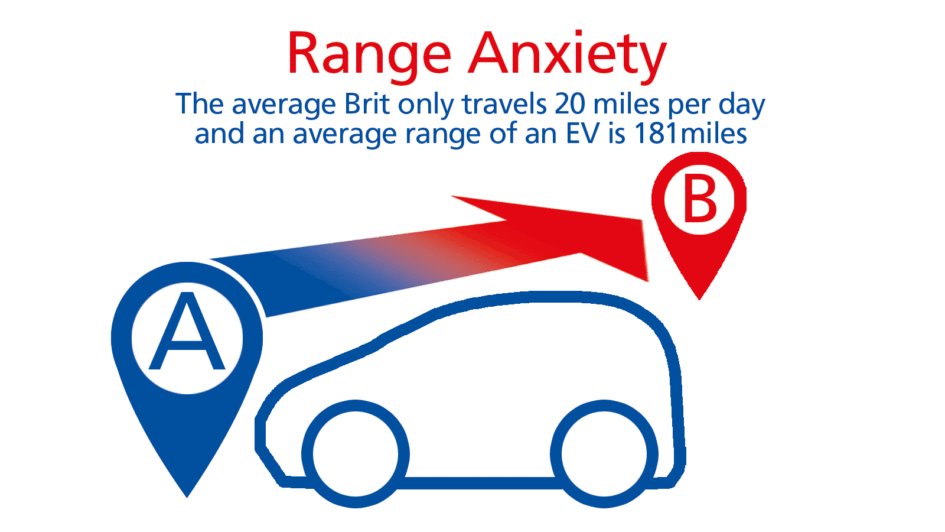As with anything new, a lot of fake news and myths circulate, some of which can have a detrimental effect. It’s fair to say that electric vehicles have their fair share of these however, they are decreasing as more and more people begin to read and understand just how they work, what the Government stance is on them, and learn how the major car manufacturers are committing in their droves to switching to all electric models as soon as practically possible.
We take a look at some of the most common EV myths and show you why they are completely unfounded! Read on and prepare to be amazed!
Range Anxiety
Fears of being stranded, miles away from a charging point is one of the main concerns people perceive about EV’s. However, when you consider that the average Briton drives just 20 miles a day and the average range for a fully charged EV is 181 miles the worry soon becomes unfounded.
Dirtier than diesel
We’re not sure where this one came from however, without any tailpipe emissions driving an electric vehicle is much better for the environment. They don’t emit carbon dioxide, one of the major drivers of climate change and there are no air pollutants such as sulphur dioxide or nitrogen oxides which are harmful to our health. And let’s not forget the decrease in noise pollution too; an EV is much quieter than any combustion engine.
You can’t get them wet
Contrary to some rumours you can drive them in the rain, wash them, take them through a car wash, drive them through large puddles and charge them in the rain.
As part of their testing regime, they undergo a soak test, chargers and cables are waterproof and batteries are well protected from the elements just as all other electrical components in non EV’s are. So those figures that you’ve read where 12% believe an EV can’t be driven in the rain, and a further 18% say you can’t wash them in a car wash actually add up to 30% being mis-informed.
They’re too expensive to run
Choosing an EV can actually save you considerable amounts of running costs. According to the Energy Saving Trust, “a typical EV can run for 100 miles at a cost of £4 to £6, compared to £13 to £164 for 100 miles in a petrol or diesel car.” As an added bonus there’s no road tax, reduced company car tax and you don’t have to pay the congestion charge in the capital if you’re driving an EV.
There’s nowhere to charge them
That’s not quite the case and it is literally growing week on week. As of mid-March 2021 there were 39072 connectors, 22623 devices in 14,467 locations in the UK according to Zap Map. And, as any self- respecting EV driver knows, installing a home charger is the best way to charge as you can charge whilst the vehicle is not in use and it’s faster than the three pin ‘trickle’ charge.
There’s hardly any choice
There are around 130 electric vehicle types currently available giving plenty of choice in terms of budget and motoring needs. And, with many of the major car manufacturers pledging to offer nothing other than EVs in their portfolio within the next decade, choice is only going one way and that is up.
We hope that settles a few popular misconceptions however, if you’ve got any questions at all get in touch with us and we’ll help if we can.
For further information about Webasto products and their integration into the EV market visit https://charging.webasto.com/en-uk/everything-ev/


Leave a Reply
You must be logged in to post a comment.